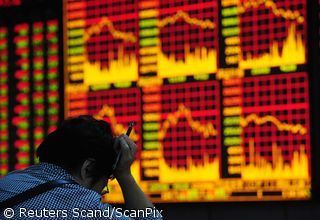The European Union wants four eastern candidate countries to reduce requests for sugar production quotas, an EU official said on Friday.
Published:
1 August 2000 y., Tuesday
In June the EU sent a formal response to the accession candidates - Poland, Hungary, the Czech Republic and Estonia - inviting them to reconsider their requests for quotas.
The EU told the applicants that decisions on annual production quota were based on historical production figures, EU commitments to World Trade Organization rules and the need to avoid adding to EU market surpluses.
Poland sought a sugar quota of 1.886 million tons, of which 20,000 tons was requested for isoglucose. Hungary asked for a quota of 620,000 tons, with 140,000 to be allocated to isoglucose. The Czech Republic and Estonia sought 505,000 and 75,000 tons respectively.
Copying, publishing, announcing any information from the News.lt portal without written permission of News.lt editorial office is prohibited.
The most popular articles
 European conference promotes regional solutions to global challenges.
more »
European conference promotes regional solutions to global challenges.
more »
 Iceland‘s low-fare airline Iceland Express will launch regular flights by the new-generation „Boeing 737-700“ planes to about 8 different destinations from Vinius International Airport.
more »
Iceland‘s low-fare airline Iceland Express will launch regular flights by the new-generation „Boeing 737-700“ planes to about 8 different destinations from Vinius International Airport.
more »
 Over 3 million people around the world have lost their jobs due to the financial crisis and, according to the UN, economic recovery is unlikely to reach those that have suffered most - poor women and children.
more »
Over 3 million people around the world have lost their jobs due to the financial crisis and, according to the UN, economic recovery is unlikely to reach those that have suffered most - poor women and children.
more »
 The European Commission has today decided not to raise any objections to the public financing of infrastructure developments at three Lithuanian airports – Vilnius, Kaunas and Palanga International Airports.
more »
The European Commission has today decided not to raise any objections to the public financing of infrastructure developments at three Lithuanian airports – Vilnius, Kaunas and Palanga International Airports.
more »
 The European Commission has published the results of a public consultation launched in June 2009 on whether and how deadlines should be set for the migration of existing national credit transfers and direct debits to the new Single Euro Payments Area (SEPA) payment instruments.
more »
The European Commission has published the results of a public consultation launched in June 2009 on whether and how deadlines should be set for the migration of existing national credit transfers and direct debits to the new Single Euro Payments Area (SEPA) payment instruments.
more »
 A favourable climate for innovation in the EU can speed up the transition to an eco-efficient economy and increase Europe’s global competitiveness.
more »
A favourable climate for innovation in the EU can speed up the transition to an eco-efficient economy and increase Europe’s global competitiveness.
more »
 The International Monetary Fund (IMF) and the Deutsche Bundesbank have signed an agreement to provide the Fund with up to the equivalent of €15 billion (about US$22 billion).
more »
The International Monetary Fund (IMF) and the Deutsche Bundesbank have signed an agreement to provide the Fund with up to the equivalent of €15 billion (about US$22 billion).
more »
 Today the European Central Bank is publishing a report entitled “Euro Money Market Survey 2009”, which illustrates the main developments in the euro money market in the second quarter of 2009, in comparison with the second quarter of 2008.
more »
Today the European Central Bank is publishing a report entitled “Euro Money Market Survey 2009”, which illustrates the main developments in the euro money market in the second quarter of 2009, in comparison with the second quarter of 2008.
more »
 New EU laws proposed for closer oversight of financial services industry, sending a strong signal to this week's G20 summit.
more »
New EU laws proposed for closer oversight of financial services industry, sending a strong signal to this week's G20 summit.
more »
 The European Commission has repeatedly underlined that the restructuring plan of new Opel Europe must guarantee that the company will be viable in the future.
more »
The European Commission has repeatedly underlined that the restructuring plan of new Opel Europe must guarantee that the company will be viable in the future.
more »